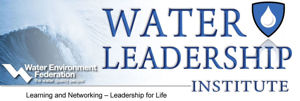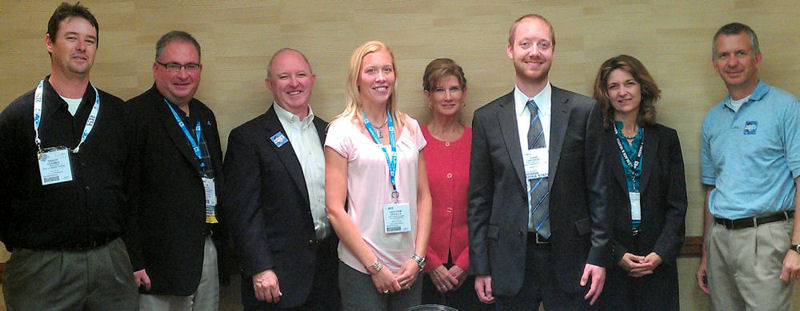 First impressions form within the first 30 seconds of meeting someone. Signals like the firmness of a handshake and degree of eye contact convey personality styles to the perceptive observer. Learning how to effectively communicate with others is an important professional skill that can be enhanced by a basic understanding of personality styles, said Linda Kelly, Water Environment Federation (WEF; Alexandria, Va.) senior director of development.
First impressions form within the first 30 seconds of meeting someone. Signals like the firmness of a handshake and degree of eye contact convey personality styles to the perceptive observer. Learning how to effectively communicate with others is an important professional skill that can be enhanced by a basic understanding of personality styles, said Linda Kelly, Water Environment Federation (WEF; Alexandria, Va.) senior director of development.
On June 13, the 29 participants in the Water Leadership Institute (WLI), a WEF program, zeroed in on personality styles and communication skills. Pam Kenel, Black & Veatch (Overland Park, Kan.) associate vice president, and Kelly, discussed these topics with WLI participants during the American Water Works Association (AWWA; Denver) 2012 Annual Conference and Exhibition in Dallas.
The WLI program is a 7-month leadership course to train future leaders and provide opportunities to build lasting relationships within the water sector. The WLI program was created by WEF and endorsed by AWWA.
To collaborate effectively, one must learn to identify and communicate with various types of people, Kelly said. Learning how to handle various personality styles fosters better communication and teamwork, she added.
“There is no best personality style,” Kelly said, but “communication can be hampered by unlike personalities. … There are major areas of conflict automatically, because your preferences are so different.”

Those who participated in the Water Leaderhsip Institute (WLI) event included, from left, Grady Coomes, WLI participant; Joe Mantua, American Water Works Association (Denver) past president; Richard D. Kuchenrither, WLI participant; Heather Cheslek, WLI participant; Linda Kelly, presenter and WEF senior director of development; Adam Carpenter, WLI participant; Pam Kenel, presenter and Black & Veatch (Overland Park, Kan.) associate vice president; and Matt Bond, WEF president. WEF photo/Kristina Twigg. Click for larger image.
Understanding personalities is a fundamental communication skill, Kelly said. “Technical training and skill building [are] equal in importance to understanding the people that you are going to accomplish objectives with throughout your career,” she said.
While Kelly focused on the individual, Kenel tied individual professional development to the success of companies. Learning to adapt is an essential success factor, both for individuals and for organizations, especially with rapid changes in information technology, she said.
“Information technology allows us to access reams and reams of information,” Kenel said. “But it’s just data on our screen if we don’t have the ability to make knowledge productive.”
Kenel stressed the importance of making knowledge productive by sharing individual and company experiences at conferences, in journals, and through social media to further professional development.
Sharing lessons learned can be a powerful tool for advancing innovation in the water sector, and as leaders, it is important to share that knowledge, Kenel said. She added that professional associations provide opportunities for leadership, professional development, and building personal networks that enable collaboration.
— Kristina Twigg, WEF Highlights








July 15, 2012
Featured, Learning Opps